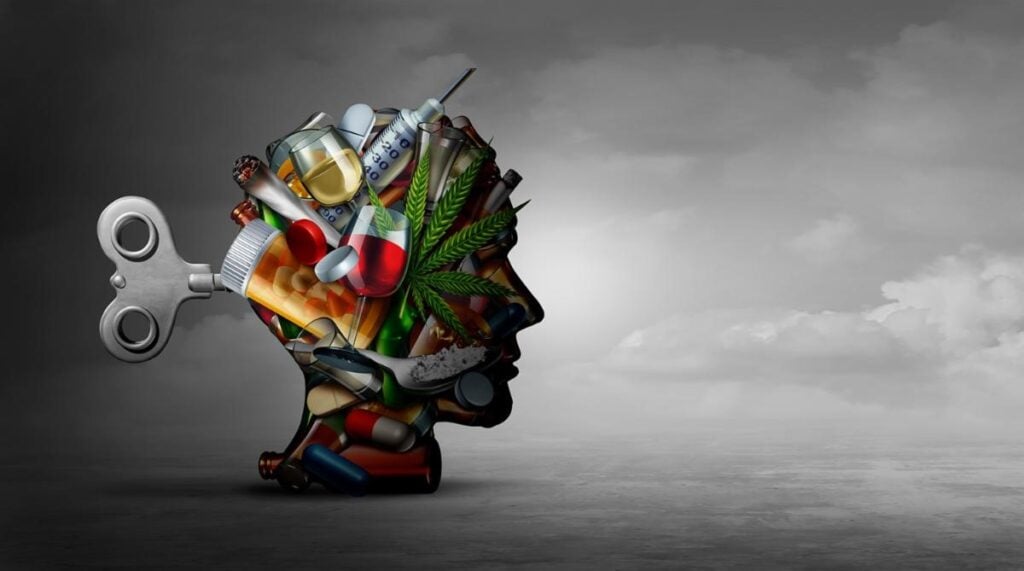Cannabis Withdrawal
 By Erin Snider, APRN, PMHNP-BC
By Erin Snider, APRN, PMHNP-BC
 With the increased availability and potency of cannabis, the potential for “addiction” has never been more relevant. The Diagnostic and Statistical Manual-V (DSM-V) does not use the term “addiction” but classifies the diagnosis as “Cannabis Use Disorder” from mild to severe. The diagnostic criteria consist of problematic patterns of cannabis use leading to clinically significant impairment in an individual’s life. The presence of “Tolerance” and “Withdrawal” are not necessary for a diagnosis but are often present in the presentation of those with moderate to severe cannabis use disorder.
With the increased availability and potency of cannabis, the potential for “addiction” has never been more relevant. The Diagnostic and Statistical Manual-V (DSM-V) does not use the term “addiction” but classifies the diagnosis as “Cannabis Use Disorder” from mild to severe. The diagnostic criteria consist of problematic patterns of cannabis use leading to clinically significant impairment in an individual’s life. The presence of “Tolerance” and “Withdrawal” are not necessary for a diagnosis but are often present in the presentation of those with moderate to severe cannabis use disorder.
With the increased availability and potency of cannabis, the potential for “addiction” has never been more relevant. The Diagnostic and Statistical Manual-V (DSM-V) does not use the term “addiction” but classifies the diagnosis as “Cannabis Use Disorder” from mild to severe. The diagnostic criteria consist of problematic patterns of cannabis use leading to clinically significant impairment in an individual’s life. The presence of “Tolerance” and “Withdrawal” are not necessary for a diagnosis but are often present in the presentation of those with moderate to severe cannabis use disorder.
THC Delta-9 ‐tetrahydrocannabinol (THC), the main psychoactive component in cannabis (marijuana) and can lead to dependence, tolerance, and withdrawal. “Dependence” refers to needing the substance to function both physically and psychologically where “tolerance” is defined as needing more of the substance to get desired effect. Withdrawal is identified by the presence of physical and psychological signs and symptoms when cannabis is abruptly stopped. “Withdrawal” can occur with cessation of cannabis in moderate to heavy users, which is defined in DSM-V as almost daily for at least a few months.
The DSM-V does classify a diagnosis of “Cannabis Withdrawal” and it is estimated that up to one third of all individuals who have used cannabis “regularly” during their lifetime will experience withdrawal. “Heavy” cannabis users report 50-95% occurrence of withdrawal symptoms.
Withdrawal symptoms from cannabis vary based on frequency and duration of use as well as individual metabolism. These symptoms can cause clinically significant distress or impairment in social, occupational, or other areas of functioning. Withdrawal symptoms do not typically require medical attention however they can make it difficult for individuals trying to quit, often contributing to “relapse”. Symptoms start 24-72 hours after last dose and peak
Cannabis Withdrawal:
1 week after last use. They usually resolve after 2 weeks. Sleep disruption can last up to 30 days.
Signs and Symptoms:
The most common features of cannabis withdrawal are anxiety, irritability, anger or aggression, restlessness, disturbed sleep, insomnia disturbing dreams, depressed mood, and decreased appetite.
Less common physical symptoms include chills, headaches, shakiness/tremor, physical tension, sweating and stomach pain.
Management:
Supportive Counseling and Psychoeducation: These are the first-line approaches for managing cannabis withdrawal.
Medications: While no specific medications are approved for cannabis withdrawal, some have been used to manage short-term symptoms (e.g., anxiety, sleep, nausea).
Promising Pharmacological Agents: Several medications have shown promise in controlled trials, but further research is needed.
Inpatient Admission: For patients with significant comorbid mental health disorders and polysubstance use, inpatient admission may be necessary to prevent severe complications.
Clinical Significance: Cannabis withdrawal symptoms can precipitate relapse to cannabis use.
Complicated withdrawal may occur in individuals with concurrent mental health issues and polysubstance use and precipitate a mental health crisis.
Remember that everyone’s experience with withdrawal is different. If these symptoms feel overwhelming, or you are having severe withdrawal symptoms or are worried about dependence, it’s essential to seek professional assistance. Don’t hesitate to reach out to a healthcare professional for guidance and support. Help is available, and you don’t have to go through this alone.